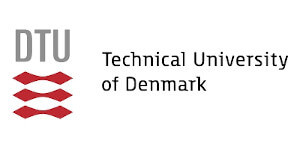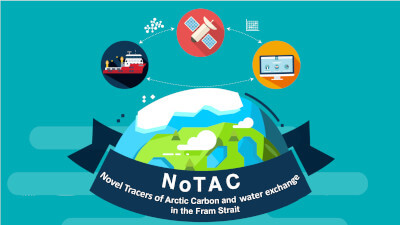NoTAC, Fram Strait transect
Novel Tracers of Arctic Carbon and water exchange in the Fram Strait (NoTAC)
Principal investigator: Dr. Rafael Gonçalves-Araujo, Technical University of Denmark

Project Partners: Dr. Piotr Kowalczuk, Institute of Oceanology Polish Academy of Sciences, Poland; Dr. Lumi Haraguchi, Finnish Environment Institute, Finland; Dr. Juliana D’Andrilli, Louisiana Universities Marine Consortium, United States of America; Dr. Jixin Qiao, Technical University of Denmark; Dr. Colin A. Stedmon, Technical University of Denmark; Dr. Christopher L. Osburn, North Carolina State University, United States of America
Research Icebreaker: RV Kronprins Haakon
Schedule: August-September 2020 and 2021
Abstract: NoTAC is an international collaboration across several institutions from Denmark, Finland, Poland and USA with a diverse team varying from early career (ECS) to senior scientists. The project focuses on assessing the application of novel, cost-effective water masses tracers, with special interest in tracking the Arctic outflow entering the Atlantic basin through a major gateway, the Fram Strait. Initial pilot studies undertaken by the research team indicate a consistent dissolved organic matter (DOM) signal within the surface waters exiting the Arctic Ocean. Therefore, a major objective is to assess the variability in DOM composition and concentration within the targeted water masses (halocline and Atlantic waters) in order to develop an empirical model for retrieving water fractions from the optical properties of DOM. The model will be calibrated and validated with in situ radioisotope analysis. Additionally, to check for the consistency on DOM signal and reactivity, we will determine the importance of photochemical and microbial degradation on the mineralization of distinct DOM-pools through incubation experiments. Apart from investigating the potential of DOM as a water mass tracer, microbial community (e.g., phyto- and zooplankton) biomass and composition will be explored as an alternative tracer, given the dependency of those organisms to the water mass physico-chemical characteristics. As the Arctic oceanographic community move towards autonomous, sensor-based sampling, the project will calibrate and validate the use of state-of-the art in situ bio-optical data to expand existing techniques for tracing water mass origin in the Arctic. Finally, apart from the scientific planned activities, NoTAC will also promote training for ECS through the opportunity to join the expeditions (pre-cruises preparation and sample and data analysis) and post-cruises workshops, enabling interaction with scientists from other disciplines and institutions.


